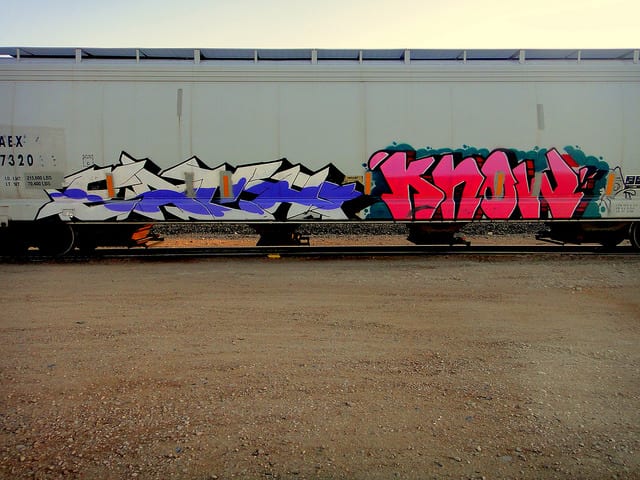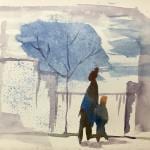
How We Know What We Think We Know
Most of us are convinced we know what we think we know.
Some of us believe our senses have shown us what we think we know. We trust our own eyewitness testimony. There are experiences we remember so strongly they shape how we see the rest of our lives.
We might have learned what we think we know from other people. What we think we know may come from years of education or from books we have read on our own. Some of us take lessons from stories passed down generation after generation. We may learn what we think we know online.
I know people who pride themselves on knowing a lot. Some of them are experts in esoteric academic subjects. What fascinates many of them is learning more and more shows them what they do not know more clearly.
It is almost as if what we think we know shows us what we do not know.
Many of us think as we learn more we get closer and closer to knowing the truth. We assume we are able to corner and capture the truth so it can no longer elude us.
In fact, I know many people who put a lot of energy into ignoring or avoiding what they think they know. They invest their time in distractions which keep them from paying attention to what they think they know.
What do we know and how do we know it? Are the things we know steps toward understanding the truth? Or is what we think we know pointing the way to what we do not know?
Are there things we think we know which we are working hard to ignore or forget? Why are we driven either to know more or to forget what we already think we know?
Questioning What We Think We Know
I thought spiritual life was all about knowing. My spiritual practices were about searching and finding. I was essentially a spiritual detective, looking for clues which would answer questions and solve riddles.
It was clear I was the active participant in spiritual life, pursuing what I thought I knew.
I was comfortable being a spiritual detective because I was running my own cases. My general understanding of what to do was fine as long as I did things by the book. I invested myself in solving mysteries and finding for answers to questions.
Like every good mystery, spiritual life has layers and layers of meaning to explore. I set out in search of answers to fill in the blanks, check the boxes, and fit words into open spaces. As I continued to pursue solutions I came to see they were neither as tangible nor as clear as I had thought.
Growing and maturing take time and effort and help from other people. I began to recognize while I was pursuing answers spiritual life was also pursuing me.
Apparently knowing the answers might not be as essential as I had thought it was.
What we think we know opens our eyes to what we do not know. Each answer, each solution we believe we have found opens us to more questions and more mysteries. Spiritual life is about being open to new questions, about questioning what we think we know.
Questioning what I think I need to know has become a spiritual practice for me. There are valuable lessons waiting for us in mysteries.
It is easy for us to assume what we think we know is real. We are not certain, not sure until we ask questions about what we think we know.
Fearing What We Think We Know
Some of us do not question what we think we know because we are afraid. We may fear we have made a mistake. If we start asking questions everything we think we know could fall apart.
Others of us are afraid because we are not sure where our questions could take us. We think we know truths which fit together into a neat, tidy, dependable world. Questions could open the door to all kinds of ambiguity, uncertainty, and chaos.
We may have been taught some questions are good and some are bad. It is important for us, we have been told, not to get carried away. Asking bad questions could lead us astray and distract us from what is good.
I believe the only questions we need to fear are the ones we are unwilling to ask.
People sort out what we believe, what we think, and what we know by asking questions. Our curiosity is one of our greatest strengths in practicing spiritual life.
Some questions may be more complex than others, but no questions are off limits. Spiritual life is about asking questions and exploring. There are no questions too large or too small for spiritual life.
Do We Know What We Think We Know?
It is a challenge for us to know what we think we know.
We live lives filled with things to know. It is almost as if we are swimming in an ocean of facts and information. Many of us do know know what we think we know because we do not take time to understand.
Most of us are surrounded by tools and technology we do not really understand. We do not understand the workings of the automobiles we drive or even the phones we carry with us.
Some of us know how to make things do what we want them to do, which buttons to push in what order. We do not, though, have the first idea of why they work or how to get them to work again.
Many of us relate to our souls the same way we relate to our phones.
What do we think we know and how do we know whether we know it or not? Do we know what we think we know?
How do we know what we think we know today?
When will we question what we think we know this week?
[Image by FunGi_ ]
Greg Richardson is a spiritual life mentor and coach in Southern California. He is a recovering attorney and a lay Oblate with New Camaldoli Hermitage near Big Sur, California. Greg’s website is StrategicMonk.com, and his email address is [email protected].












